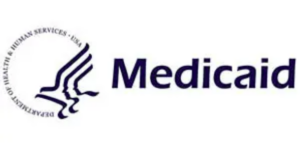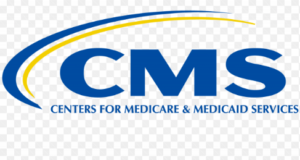 During the COVID-19 public health emergency, Congress provided temporary enhanced federal funding to states to keep enrollees continuously enrolled in Medicaid. Beginning in April 2023, states resumed full eligibility redeterminations (unwinding). States had flexibility in the in their pace of unwinding and many states were still in the process as of May 2024. The CARES Act includes a provision for the Government Accountability Office (GAO), the federal agency that examines how taxpayer dollars are spent, to report on the federal response to the COVID-19 pandemic. Among other things, this report examines the Centers for Medicare & Medicaid Services (CMS) oversight of Medicaid unwinding. The unwinding of the continuous Medicaid coverage provision has resulted in over 22 million enrollees being disenrolled as of May 23, 2024, and over 49 million have had their coverage renewed. GAO reviewed documentation of CMS’s efforts to assess state compliance with federal unwinding requirements and resolve any noncompliance from March 2023 through April 2024 and interviewed CMS officials about plans for future oversight. According to the report, during the unwinding, CMS found compliance issues with federal redetermination requirements in almost all states, including with long-standing requirements. GAO is recommending that CMS document and implement the oversight practices the agency learned during unwinding were needed for preventing and detecting states compliance issues with redetermination.
During the COVID-19 public health emergency, Congress provided temporary enhanced federal funding to states to keep enrollees continuously enrolled in Medicaid. Beginning in April 2023, states resumed full eligibility redeterminations (unwinding). States had flexibility in the in their pace of unwinding and many states were still in the process as of May 2024. The CARES Act includes a provision for the Government Accountability Office (GAO), the federal agency that examines how taxpayer dollars are spent, to report on the federal response to the COVID-19 pandemic. Among other things, this report examines the Centers for Medicare & Medicaid Services (CMS) oversight of Medicaid unwinding. The unwinding of the continuous Medicaid coverage provision has resulted in over 22 million enrollees being disenrolled as of May 23, 2024, and over 49 million have had their coverage renewed. GAO reviewed documentation of CMS’s efforts to assess state compliance with federal unwinding requirements and resolve any noncompliance from March 2023 through April 2024 and interviewed CMS officials about plans for future oversight. According to the report, during the unwinding, CMS found compliance issues with federal redetermination requirements in almost all states, including with long-standing requirements. GAO is recommending that CMS document and implement the oversight practices the agency learned during unwinding were needed for preventing and detecting states compliance issues with redetermination.
Medicare Prescription Payment Plan Final Part Two Guidance on Select Topics, Implementation of Section 1860D-2 of the Social Security Act for 2025, and Response to Relevant Comments
 On July 16th, the Centers for Medicare and Medicaid Services (CMS) released final part two guidance regarding the plan outreach and education for the Medicare Prescription Payment Plan. This guidance includes policy directing plan outreach and education to increase awareness of the Medicare Prescription Payment Plan. To access the payment options outlined in the latest guidance, individuals with Medicare must opt into the Medicare Prescription Payment Plan to utilize the new benefit. Starting in 2025, Medicare Prescription Payment Plans will provide the option to people with Medicare prescription drug coverage to spread the costs of their prescription drugs over the calendar year instead of paying a lump sum at the time of purchase. In addition, the policy to cap the annual out-of-pocket prescription drug costs at $2,000 for all individuals enrolled in the Medicare prescription drug program will also begin. Authorized in the Inflation Reduction Act, the new cap on out-of-pocket drug costs is expected to provide needed financial relief for high prescription drug costs. The cap will also significantly impact rural enrollees who have higher rates of certain health conditions that requires costly medications.
On July 16th, the Centers for Medicare and Medicaid Services (CMS) released final part two guidance regarding the plan outreach and education for the Medicare Prescription Payment Plan. This guidance includes policy directing plan outreach and education to increase awareness of the Medicare Prescription Payment Plan. To access the payment options outlined in the latest guidance, individuals with Medicare must opt into the Medicare Prescription Payment Plan to utilize the new benefit. Starting in 2025, Medicare Prescription Payment Plans will provide the option to people with Medicare prescription drug coverage to spread the costs of their prescription drugs over the calendar year instead of paying a lump sum at the time of purchase. In addition, the policy to cap the annual out-of-pocket prescription drug costs at $2,000 for all individuals enrolled in the Medicare prescription drug program will also begin. Authorized in the Inflation Reduction Act, the new cap on out-of-pocket drug costs is expected to provide needed financial relief for high prescription drug costs. The cap will also significantly impact rural enrollees who have higher rates of certain health conditions that requires costly medications.
CMS Proposed Updates to Medicare Physician Fee Schedule Payments for Calendar Year 2025
 – Comment by September 9. This proposed rule from the Centers for Medicare & Medicaid Services (CMS), issued on July 10, 2024, seeks public comment on payment updates and policy changes to Medicare’s physician fee schedule payments and includes other proposals affecting Medicare and Medicaid beneficiaries. Proposals include payment for both in-person and virtual caregiver training services, permitting certain health care providers to provide virtual direct supervision to auxiliary personnel when required, temporary extension of virtual supervision of residents by teaching physicians in certain cases, permitting Opioid Treatment Programs (OTPs) to furnish periodic assessments using audio-only communications technology when video is not available on a permanent basis, and the return of statutory restrictions on geography, site of service, and practitioner type for non-behavioral health telehealth services. The proposed rule also includes proposed updates applicable to Rural Health Clinics (RHCs), including to allow RHCs to bill for administration of part B preventive vaccines at time of service, continue to require provision of primary care services but no longer enforce “primarily engaged in furnishing primary care services,” seeks comment on how to define “mental diseases” as related to the requirement that RHCs cannot be “primarily engaged in the treatment of mental diseases,” and to eliminate productivity standards. The rule also includes updates to the Quality Payment Program, Medicare Shared Savings Program, and several other proposals affecting RHCs including removal of hemoglobin/hematocrit from the six required lab services and permitting RHCS to bill individual HCPCS care management codes instead of G0511. In addition, coverage for necessary dental exams and procedures are being considered for certain treatment services and expansion of colorectal cancer screenings to promote better access for all beneficiaries is being proposed.
– Comment by September 9. This proposed rule from the Centers for Medicare & Medicaid Services (CMS), issued on July 10, 2024, seeks public comment on payment updates and policy changes to Medicare’s physician fee schedule payments and includes other proposals affecting Medicare and Medicaid beneficiaries. Proposals include payment for both in-person and virtual caregiver training services, permitting certain health care providers to provide virtual direct supervision to auxiliary personnel when required, temporary extension of virtual supervision of residents by teaching physicians in certain cases, permitting Opioid Treatment Programs (OTPs) to furnish periodic assessments using audio-only communications technology when video is not available on a permanent basis, and the return of statutory restrictions on geography, site of service, and practitioner type for non-behavioral health telehealth services. The proposed rule also includes proposed updates applicable to Rural Health Clinics (RHCs), including to allow RHCs to bill for administration of part B preventive vaccines at time of service, continue to require provision of primary care services but no longer enforce “primarily engaged in furnishing primary care services,” seeks comment on how to define “mental diseases” as related to the requirement that RHCs cannot be “primarily engaged in the treatment of mental diseases,” and to eliminate productivity standards. The rule also includes updates to the Quality Payment Program, Medicare Shared Savings Program, and several other proposals affecting RHCs including removal of hemoglobin/hematocrit from the six required lab services and permitting RHCS to bill individual HCPCS care management codes instead of G0511. In addition, coverage for necessary dental exams and procedures are being considered for certain treatment services and expansion of colorectal cancer screenings to promote better access for all beneficiaries is being proposed.
Rural-Urban Differences in Midwifery Care During Childbirth in the U.S.
This infographic from the University of Minnesota Rural Health Research Center provides a snapshot of rural-urban differences in midwife-attended births, including changes over time as access to rural obstetric care declined and severe maternal morbidity and mortality rose across the United States.
HRSA’s Teaching Health Center Graduate Medical Education Program released a new Notice of Funding Opportunity (NOFO)
For the expansion of existing approved residency programs and the establishment of newly approved residency programs. This program trains physicians and dentists in community-based settings with a focus on rural and underserved areas, providing the majority of training in community-based outpatient settings where most people receive their health care. The NOFO has two components: one to support residency slots starting in Academic Year (AY) 2024-2025 and another to support residency slots starting in AY 2025-2026. You must apply to the announcement number that corresponds to the specific academic year and NOFO number.
Academic Year 2024-25 (HRSA-25-091)–Application due September 5, 2024 11:59 p.m. ET.
- Eligible applicants: Teaching Health Center Planning and Development grant recipients and other programs that have filled positions in the 2024 residency match process but have not received THCGME funding from HRSA.
- Award: $10 million to up to six grantees over a period of four years.
Academic Year 2025-26 (HRSA-25-077)–Applications due September 20, 2024 at 11:59 p.m. ET.
- Eligible applicants: Current teaching health centers, Teaching Health Center Planning and Development grant recipients who have obtained accreditation, and other programs who are planning to be accredited and train, starting July 1, 2025, are eligible to apply. Funding for these new slots will depend on congressional appropriations.
- Award: $80 million to 41 grantees over a period of four years.
ASTHO on State Policies to Bolster Rural Health Care Workforce
The Association of State and Territorial Health Officials (ASTHO) explains policy and programs from HRSA’s Bureau of Health Workforce that state-level policymakers can use to address shortages in rural areas.
Dive Into Appalachian Data!

Take a dip in facts and figures about the Appalachian Region!
ARC’s Chartbook has over 300K data points to explore, including statistics on population (see one map above). 📍 Though much of the region has experienced population decline, Appalachian South Carolina and Georgia have grown since 2010. Some counties in Georgia experienced population growth of over 18%.
Whether you’re interested in population data, education and employment, or how rural Appalachia compares to the rest of rural America, you’ll find an endless sea of interesting facts—all presented at regional, subregional, state and county levels.
Pennsylvania Rural Health Program Receives Award for Quality Excellence

The Pennsylvania Medicare Rural Hospital Flexibility Program received the 2024 Medicare Beneficiary Quality Improvement Project (MBQIP) Certificate of Excellence Award in recognition of outstanding critical access hospital state quality reporting and performance. The Pennsylvania program, which was ranked #1 nationally, has 16 critical access hospitals — these small hospitals of 25 beds or less are in rural counties and serve Medicare, low income and uninsured populations.
The award was presented on July 18 at the annual Medicare Rural Hospital Flexibility Program reverse site visit in Washington, D.C., by the Federal Office of Rural Health Policy in the U.S. Department of Health and Human Services’ Health Resources and Services Administration. Lannette Fetzer, quality improvement coordinator, and Sandee Kyler, rural health systems manager and deputy director, of the Pennsylvania Office of Rural Health (PORH), accepted the award on behalf of the state’s critical access hospitals. PORH, a partnership between the federal government, the state government and Penn State, is administratively housed in the Department of Health Policy and Administration in the Penn State College of Health and Human Development.

MBQIP is a quality improvement activity under the Medicare Rural Hospital Flexibility grant program of the Federal Office of Rural Health Policy. The goal of MBQIP is to improve the quality of care provided in critical access hospitals by increasing quality data reporting and driving quality improvement activities based on the data. MBQIP is a voluntary reporting system that includes quality and satisfaction measures from the Centers for Medicare and Medicaid Services Hospital Compare plus a critical access hospital-specific emergency department transfer communication measure set. Pennsylvania was one of the first four states to have 100% critical access hospital participation in MBQIP.
The Medicare Rural Hospital Flexibility Program improves access to preventive and emergency health care services for rural populations. Providing federal grant funding to eligible states, the program requires states to address rural health network development and directs significant effort into designating critical access hospitals.
“Pennsylvania’s 16 critical access hospitals work vigorously to ensure their hospital provides exceptional patient care, serving as a testament to superior quality service. It is a pleasure to work with them,” Fetzer said.
During the meeting, Fetzer was asked, for the second year, to serve as one of three panelists during a session called “Intersections of Flex: Working Across Program Areas for Greatest Impact,” where she discussed how quality affects the hospital’s bottom line and the importance of quality reporting.
“Successful quality improvement is not a one-time occurrence; it is a continuous and ongoing effort to improve outcomes in health care,” Kyler said. “Our critical access hospitals care about the people and communities they serve. This recognition demonstrates their commitment to high-quality health care in these rural communities. They are commended for their continuing efforts and focus on high-quality health care.”
PORH, which provides expertise in the areas of rural health, agricultural health and safety, and community and economic development, was formed in 1991 as a partnership between the federal government, the Commonwealth of Pennsylvania and Penn State. The office is one of 50 state offices of rural health in the nation funded under a program administered by the Federal Office of Rural Health Policy and is charged with being a source of coordination, technical assistance and networking; partnership development; and assisting in the recruitment and retention of health care providers.
New Report: Oral Health Care for Children and Youth with Developmental Disabilities
The American Academy of Pediatrics published “Oral Health Care for Children and Youth With Developmental Disabilities.” This clinical report highlights the oral health needs of children and youth with developmental disabilities and calls for coordinated care.
Maternity Care in Rural Areas Is in Crisis. Can More Doulas Help?

When Bristeria Clark went into labor with her son in 2015, her contractions were steady at first. Then, they stalled. Her cervix stopped dilating. After a few hours, doctors at Phoebe Putney Memorial Hospital in Albany, Georgia, prepped Clark for an emergency cesarean section.
It wasn’t the vaginal birth Clark had hoped for during her pregnancy.
“I was freaking out. That was my first child. Like, of course you don’t plan that,” she said. “I just remember the gas pulling up to my face and I ended up going to sleep.”
She remembered feeling a rush of relief when she woke to see that her baby boy was healthy.
Clark, a 33-year-old nursing student who also works full-time in county government, had another C-section when her second child was born in 2020. This time, the cesarean was planned.
Clark said she’s grateful the physicians and nurses who delivered both her babies were kind and caring during her labor and delivery. But looking back, she said, she wishes she had had a doula for one-on-one support through pregnancy, childbirth, and the postpartum period. Now she wants to give other women the option she didn’t have.
Clark is a member of Morehouse School of Medicine’s first class of rural doulas, called Perinatal Patient Navigators.
The program recently graduated a dozen participants, all Black women from southwestern Georgia. They have completed more than five months of training and are scheduled to begin working with pregnant and postpartum patients this year.
